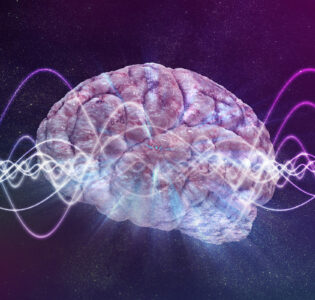Genazzano Institute – Food for thought: Boosting brain power through nutrition
Dr Amy Reichelt is a nutritional neuroscientist and who researches how food affects brain function – including our ability to learn. Here, she tells us about science-backed foods that can optimise brain function.
With exams looming and the stress of COVID-19 pandemic lockdowns, students are feeling the strain of studying in tough circumstances.
When we feel stressed out our appetite shifts. You definitely aren’t alone if you’ve found yourself staring into the fridge as a welcome distraction from your thoughts or have a sudden overwhelming urge to eat ice cream after listening to the news.
Our body’s stress response takes a lot of mental energy, leaving us craving comfort foods to soothe our negative feelings and also to quickly replenish energy stores. Not just any foods will satisfy our stressed-out brains – we want calorie-rich treats: lollies, chips, cookies, ice cream and Nutella, straight from the jar.
Tasty treats release the feel-good chemical dopamine in our brain’s reward centre – making us want more of these foods. Unfortunately, eating lots of sugary and fatty foods can impair brain function by reducing neuroplasticity – a vital process for learning and memory, and increase inflammation in brain centres involved in cognition.
Knowing what to avoid eating for brain health is just one way that neuroscience can inform our food choices. Key nutrients can boost brain function to optimise learning too. Here are some nutrient-rich foods that have been scientifically shown to optimise brain function.
Salmon, walnuts and green veggies
You need “good fats” in your diet to keep your brain healthy. Your brain is actually the fattiest organ in the body – nearly 60% fat – with fatty acids making up grey matter (neurons) and white matter (the insulation that surrounds nerves). Oily fish like salmon, mackerel and sardines are abundant sources of omega-3 fatty acids. Omega-3s are a key building block of the outer membrane that surrounds neurons, keeping the membrane fluid so neurons function optimally and ready to form new connections that are vital for learning. Promising clinical studies also show that omega-3 supplements are also beneficial for mental health, easing anxiety and improving mood.
There are lots of plant-based sources of omega-3s too: nuts and seeds – especially walnuts and chia seeds, edamame beans, seaweed and cruciferous veggies like brussel sprouts and broccoli. As a bonus, seafood, nuts, seeds and dark leafy veggies are also rich in the mineral magnesium, which can calm the mind, aid restful sleep and ease pre-exam nerves.
Avocados and eggs
Monounsaturated fatty acids are another dietary fat that that keeps your brain healthy, and are found in avocados, nuts and olives. You might have heard of the heart health benefits of Mediterranean diets – which centre around monounsaturated fat-rich foods, but these diets are great for brain function and mental health too. Foods like avocados increase the levels of the neurotransmitter acetylcholine – a brain chemical essential for attention – improving focus during study sessions. The essential nutrient choline is an important building block of acetylcholine, which is abundant in eggs. Adding a poached egg to avocado toast makes a great breakfast to kick off a successful day of learning.
Green tea
While I find it difficult to start my morning without a caffeinated-kick from coffee, green tea has great benefits for effective study sessions. Green tea is lower in caffeine than coffee or black tea and contains L-theanine – a compound that makes the neurotransmitter GABA, which can ease anxiety. Green tea also contains the chemical EGCG (epigallocatechin-3 gallate), an antioxidant that can boost brain function by increasing the numbers of new neurons formed in the brain’s memory centre – the hippocampus – so makes learning more effective.
A healthy diet is vital for brain function. Knowing what brain-boosting foods to eat can optimise learning and keeps your brain in its best shape. Including brain-boosting foods into your meals and snacks is much easier when you know what to look out for!
Links:




